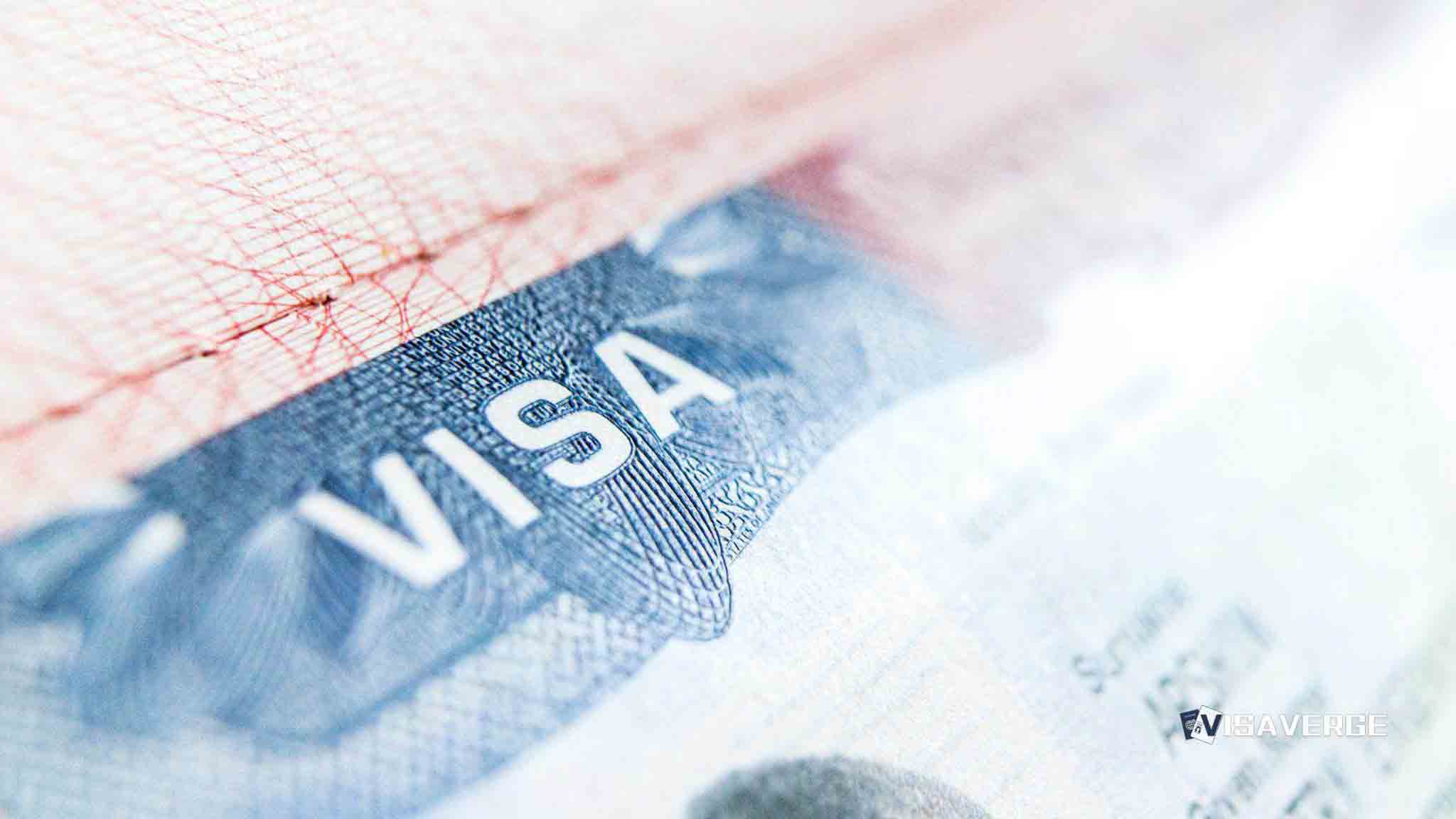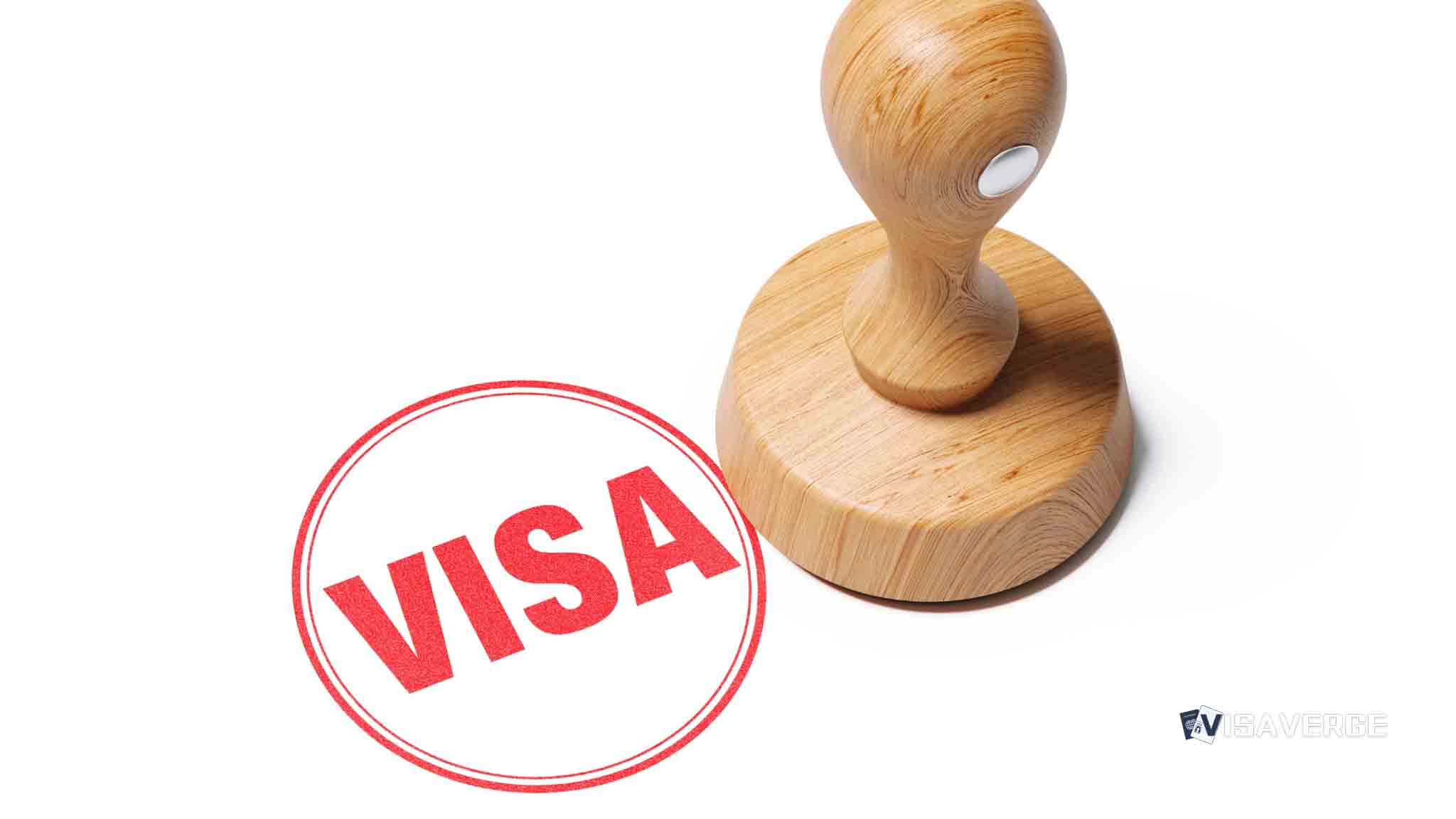Key Takeaways
• From May 2, 2025, non-approved program students lose work rights and family reunification in Denmark.
• No post-graduation job search stay for non-EU/EEA students in non-state-approved courses.
• Previous applicants and current students keep existing rights under old rules before the deadline.
Denmark 🇩🇰 has introduced a new set of rules that have changed the path for many foreign students hoping to study and work in the country. Starting May 2, 2025, these changes make it harder for some international students to find work or bring their families while living in Denmark. The new rules are part of Denmark’s wider effort to control its immigration system and protect its labor market.
What Has Changed for Foreign Students?

The Danish Ministry of Immigration and Integration has amended its guidelines on how it gives out residence permits and work rights to students. These changes mainly affect students from outside the European Union (EU) and the European Economic Area (EEA), especially those enrolled in programs that the state does not approve.
Key Restrictions for Foreign Students
Here are the main things that have changed:
1. No More Work Permits for Some Students
– If you are an international student in Denmark 🇩🇰 and your program is not approved by the state, you cannot get a work permit anymore.
– In the past, students from outside the EU and EEA could work part-time during the academic year (up to 20 hours a week) and full-time during summer breaks. This allowed many to earn money to help pay for their living costs.
– Now, this option has been removed for students in non-approved programs. You will not be allowed to work during your time in Denmark if your program is not on the state-approved list.
2. No Post-Graduation Job Search Stay
– Previously, many foreign students in Denmark 🇩🇰 could stay for an extra six months after finishing their studies to look for a job.
– This “job search stay” has now ended for students coming from outside the EU or EEA who attended non-state-approved schools or courses.
– Without this time to look for a job in Denmark 🇩🇰, these students must leave the country soon after they finish their studies.
3. Family Members Can No Longer Join
– Before the new rules, it was possible for foreign students to bring their family members, such as a spouse or partner, with them to Denmark 🇩🇰.
– Now, those in non-approved programs will not have the right to family reunification. This means their families cannot live with them in Denmark while they study.
– On top of that, family members used to be able to work under their visa. This will no longer be the case for new students in these programs.
Denmark’s Reasons for the New Rules
There are several reasons why the Danish authorities have made these changes.
1. Stopping Visa Misuse
– Officials believe that some people have been using the student visa system not to study, but mainly to enter Denmark 🇩🇰 for work.
– The goal is to make sure only those whose main intention is to study are given residence permits.
2. Worries About the Labor Market
– Some Danish authorities noticed a trend: people from certain countries, such as Nepal 🇳🇵, were using student visas as a backdoor to get jobs.
– There were cases where these students focused more on working than on their education.
3. Preventing Exploitation
– Reports have surfaced about foreign students being forced into low-paid jobs or sometimes being taken advantage of by employers.
– The government hopes the new restrictions will protect students from unfair labor practices.
Who Will These Changes Affect?
Not every foreign student will be impacted by the new rules. The main group affected includes:
– Third-country nationals — students from outside the EU and EEA.
– Students enrolled in non-state-approved higher education programs. “Non-state-approved” means programs that are not officially listed or supported by the Danish government.
– Anyone applying for a residence permit to study in Denmark 🇩🇰 from May 2, 2025, and onward, if their program is not state-approved.
If you fall into these groups and your application comes after May 2, 2025, you will not be able to work while studying—or bring your family with you—if your course is not on the approved list.
Who Is NOT Affected?
Some students are not hit by these new regulations:
– If you applied for your residence permit before May 2, 2025, the old rules still apply.
– Foreign students who already have a permit for a course not on the approved list as of that date can still keep their work rights and the ability to have family with them while in Denmark 🇩🇰. This is true even if you later ask for an extension of your permit.
– These protections mean that current students don’t suddenly lose the benefits they planned on when applying.
How to Check If Your Program Is Approved
State-approved programs are those officially recognized and listed by the Danish government. Most degree courses at public universities are approved. However, many private courses, short-term courses, and some vocational programs are not.
If you’re uncertain, you need to:
– Check directly with your school
– Visit the official website for up-to-date lists and criteria
This check is important before you submit any application or make plans for work or family while in Denmark 🇩🇩.
Denmark’s Trend of Tighter Immigration Control
These new rules are not a sudden change; instead, they are part of a bigger pattern in Denmark’s immigration system.
Previous Changes:
– In March 2025, even before this announcement, Denmark 🇩🇰 had already announced tighter restrictions on work permits for foreign students. This was part of a plan to stop the system from being misused by people trying to get into the job market.
– Changes did not just affect students. As of January 1, 2025, Denmark also introduced stricter income requirements for people from outside the EU/EEA who want a work-based residence permit. These new requirements demand that foreign workers earn enough to ensure fair wages and discourage jobs that do not pay well.
Analysis from VisaVerge.com suggests that these changes combine to show Denmark’s focus on making sure only those with genuine academic or work plans receive permission to stay in the country.
How Will This Impact Foreign Students and Denmark?
Impact on Students:
– Many foreign students pick Denmark 🇩🇰 partly because they could work during their studies, making it easier to afford living costs.
– With work rights removed for non-approved programs, it may become too expensive for some students to study in Denmark, leading to fewer applications for these courses.
– Students who had hoped to stay in Denmark after graduation to find a job will need to look elsewhere, unless they attended a state-approved program.
Impact on Universities and Private Schools:
– Some private schools or programs may see a drop in foreign student numbers.
– These organizations might have to change their offerings, lose income, or even close some courses if they relied on international students who came to Denmark 🇩🇰 mainly for the purpose of working.
Impact on Employers:
– Employers who used to hire students from non-approved courses for part-time work may now find it harder to fill those roles.
– Some sectors that often rely on student labor, such as restaurants and cleaning companies, might face worker shortages.
Impact on Families:
– Students with families and those who wish to marry or bring a partner to Denmark 🇩🇰 may have to reconsider their plans or look at countries with more flexible family rules.
Wider Context: Why Is Denmark Making These Moves?
Denmark 🇩🇰 has always been a top choice for foreign students, thanks to its high-quality education, safe cities, and modern lifestyle. But these positives also attract people who may have other motives for seeking a residence permit.
By tightening rules, Denmark hopes to:
– Keep the education system focused on learning, not as a shortcut to the job market.
– Reduce pressure on public services and jobs.
– Make sure international students who come to Denmark 🇩🇰 are really there to study.
– Protect those who might otherwise be drawn into poorly paid work or exploitative jobs.
Danish officials regularly review and adjust immigration rules as they see trends and risks changing over time. Through these steps, Denmark tries to balance the need for foreign talent in universities with the goal of keeping the job market fair for everyone.
Debates and Different Views
Not everyone agrees with the new rules.
Supporters of the Ban Say:
– The rules are needed to keep the immigration system fair and efficient.
– The government has to make sure student visas are used only for real study, and not for work or as a way to enter Denmark 🇩🇰 by the back door.
– These restrictions help avoid fake schools and scams that could hurt both students and the country.
Critics Argue:
– The rules might hurt the international profile of Denmark as a study destination.
– Private schools and less well-known programs could suffer, losing students, money, and teachers.
– The ban could feel unfair to honest students who simply need a bit of work to afford life in Denmark 🇩🇰.
– Some worry the move could feel targeted against students from poorer countries, who often rely on part-time work.
What Should Prospective Foreign Students Do Now?
If you’re thinking of studying in Denmark 🇩🇰:
– Plan ahead: Only certain programs let you work or bring your family.
– Ask your school for up-to-date details. Don’t assume you can work or stay after graduation unless your program is on the official list.
– Carefully read the rules before you apply. The Danish Immigration Service’s official site provides the latest information on which programs qualify and how residency permits work.
– Check if you are from a country that gets any special treatment or if your chosen program has state approval.
If you are already in Denmark 🇩🇰 under the old rules, you can keep your rights as long as your residence permit stays active and for any extensions, as reported by VisaVerge.com. But if you switch to a non-state-approved program after May 2, 2025, new restrictions could apply.
Conclusion: What Comes Next?
Denmark 🇩🇰 wants to keep its education and immigration systems strong and fair, so it has introduced much stricter rules for foreign students in non-state-approved higher education programs. These students will no longer be able to work, stay to look for a job after graduation, or bring family members. The goal is to stop misuse and protect all students from exploitation, but the new rules may also make Denmark less appealing for those who need work to support their studies.
These policies are part of a larger pattern where Denmark 🇩🇰 is making sure its doors are open only to those truly focused on higher education or fair, well-paid work. If you’re a student wanting to study in Denmark, always check if your chosen program allows you the work and family privileges you’re hoping for, and be sure to stay updated with the Danish Immigration Service for the latest information.
Learn Today
Residence permit → An official authorization that allows a foreign national to live, and sometimes work, in Denmark for a specific purpose.
Non-state-approved program → An educational course or institution not officially recognized, listed, or supported by the Danish government.
Family reunification → A process allowing foreign students to bring close family members to live with them during their stay.
Post-graduation job search stay → A six-month period previously granted to foreign graduates for job-seeking after their studies in Denmark.
Third-country nationals → Individuals from countries outside the European Union (EU) and European Economic Area (EEA).
This Article in a Nutshell
Denmark is tightening immigration rules for foreign students in non-approved programs starting May 2, 2025. Work rights, post-graduation job search, and family reunification are revoked for these students. Current permit holders are protected under old rules, but new applicants must carefully check program approval before applying to study or work.
— By VisaVerge.com
Read more:
• Thunder Bay reveals jobs list for new Permanent Residence pathway
• How Americans can freelance in Spain with the right residence permit
• French Republic Long-Stay Visa holders must apply for residence permit
• Asian immigrants rally over delays in residence permits in Lisbon
• New Brunswick Launches Two New Pathways to Permanent Residence













